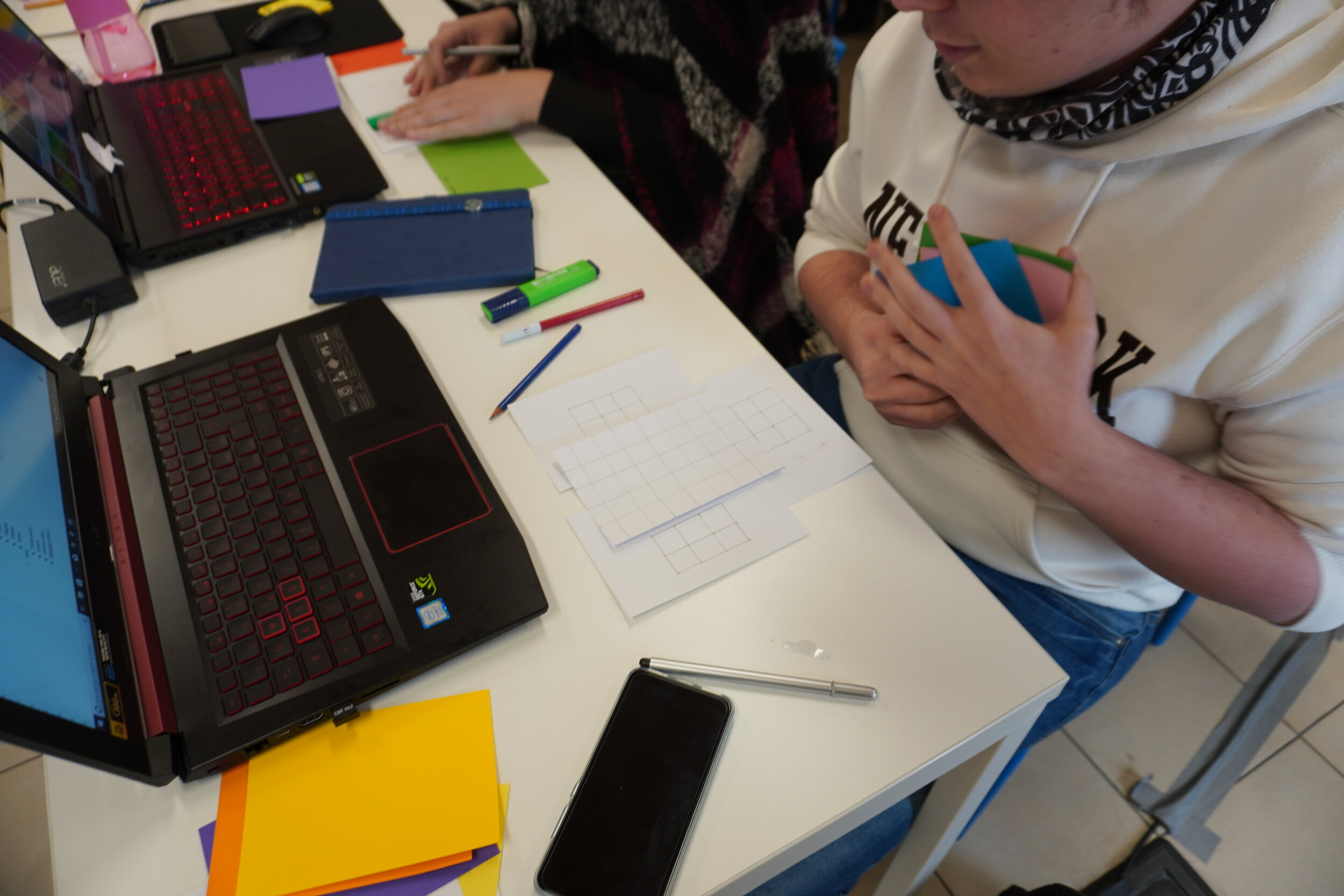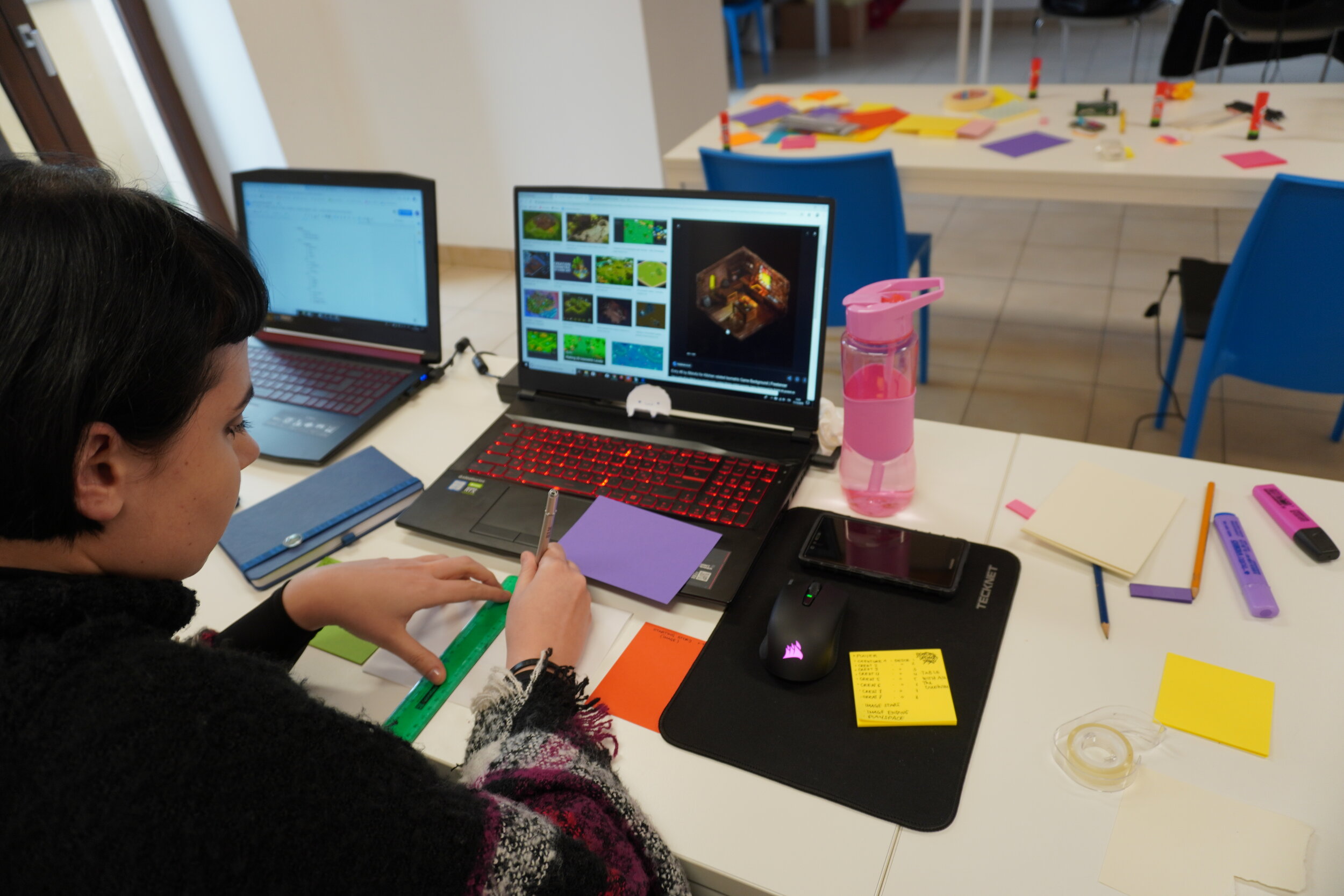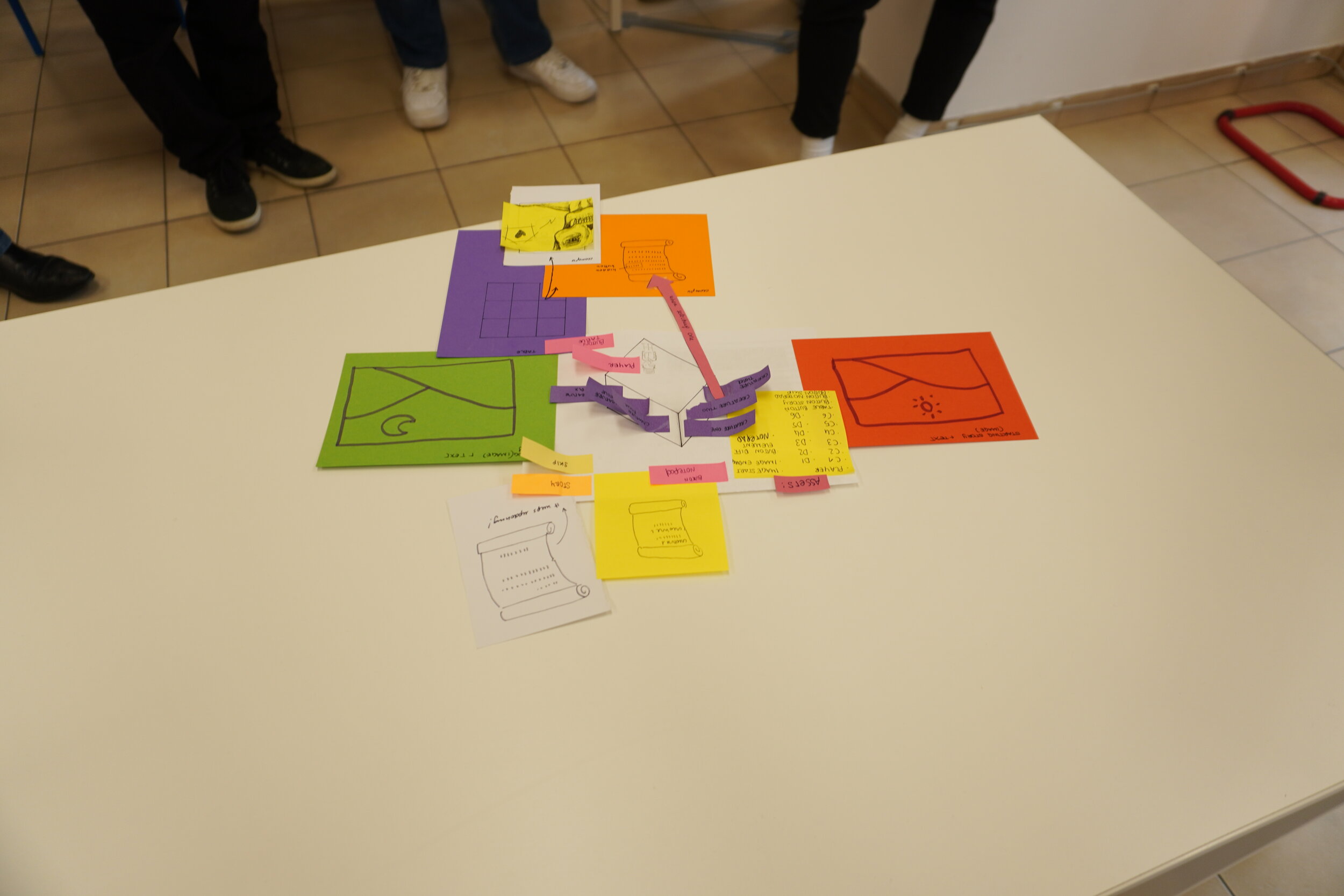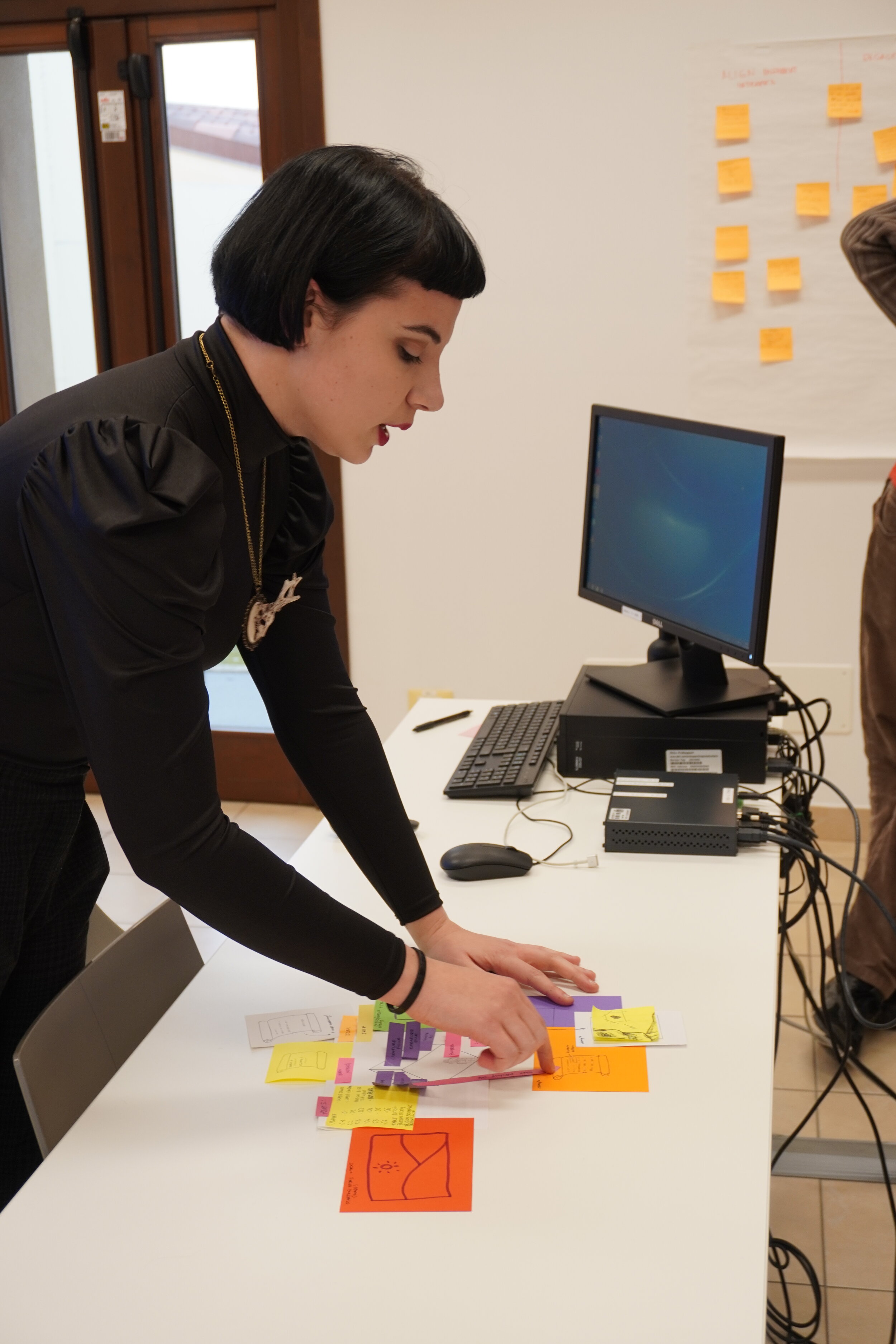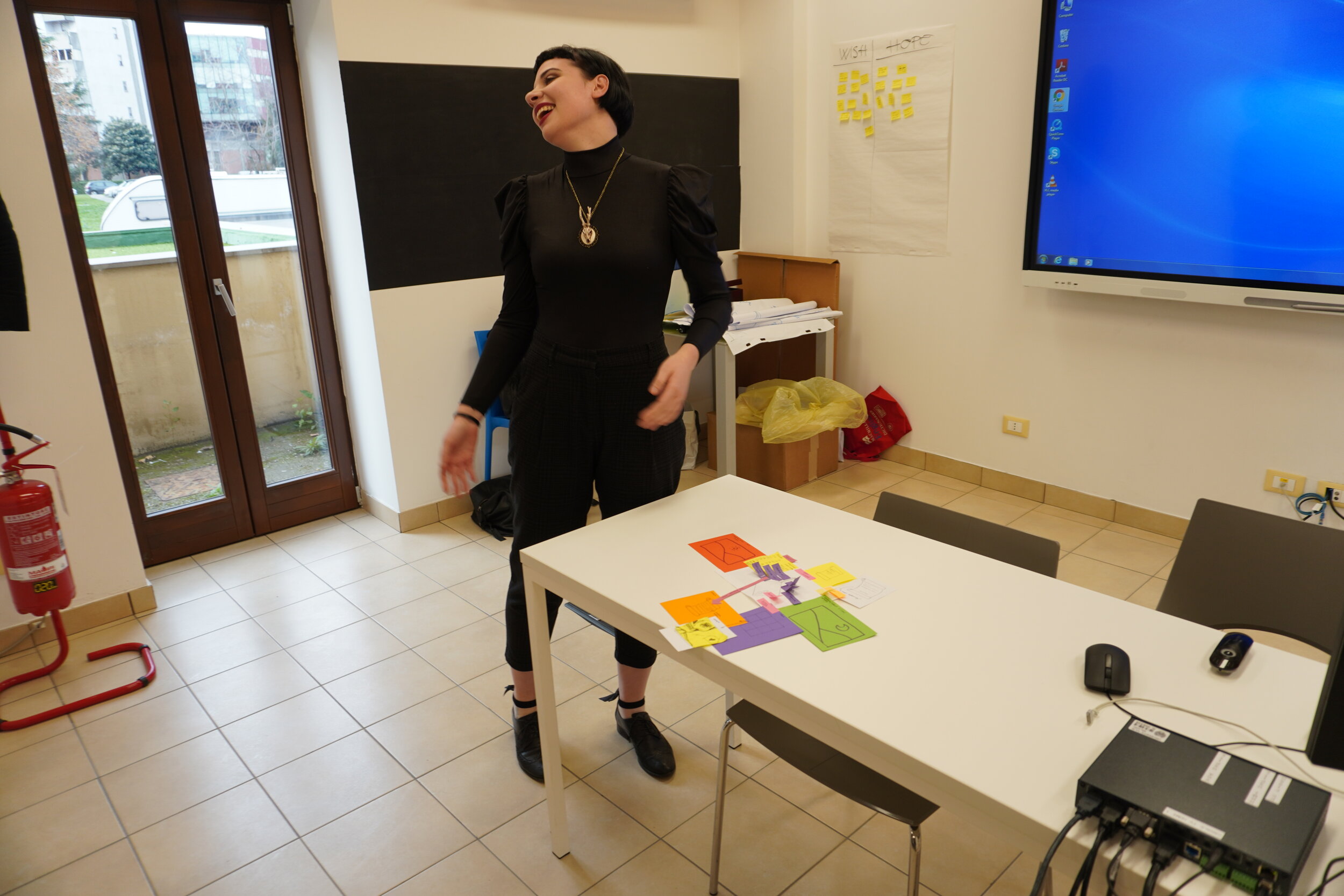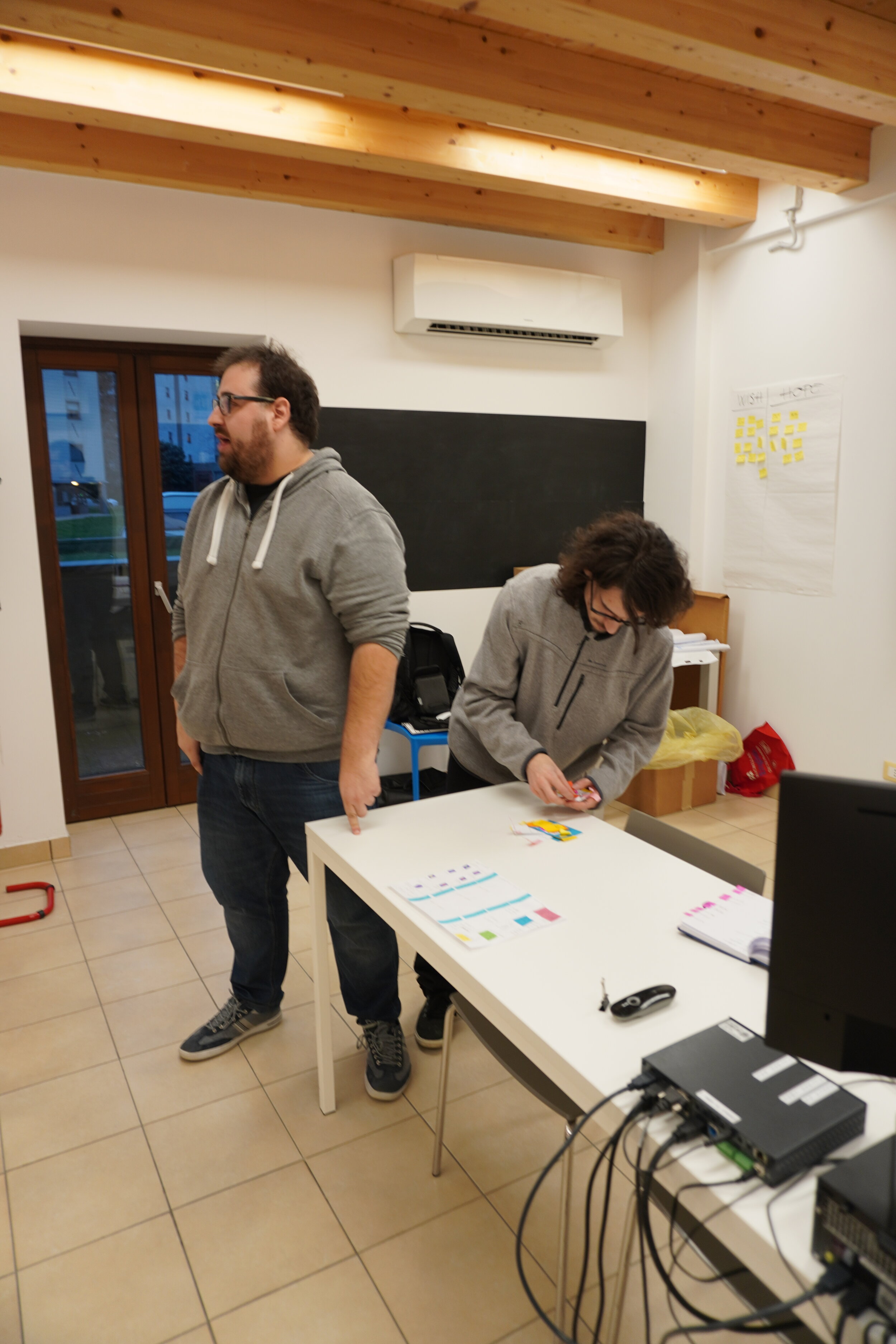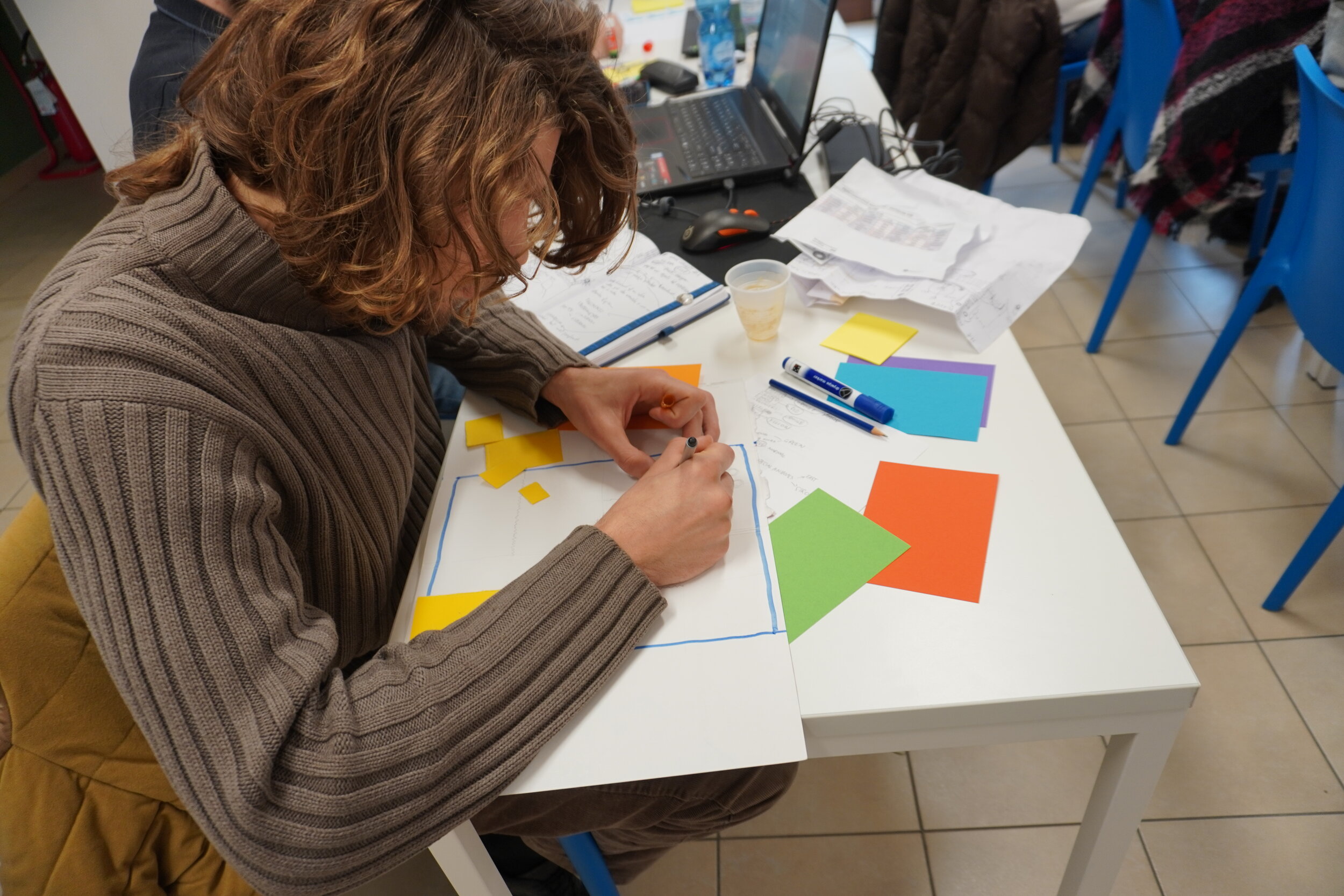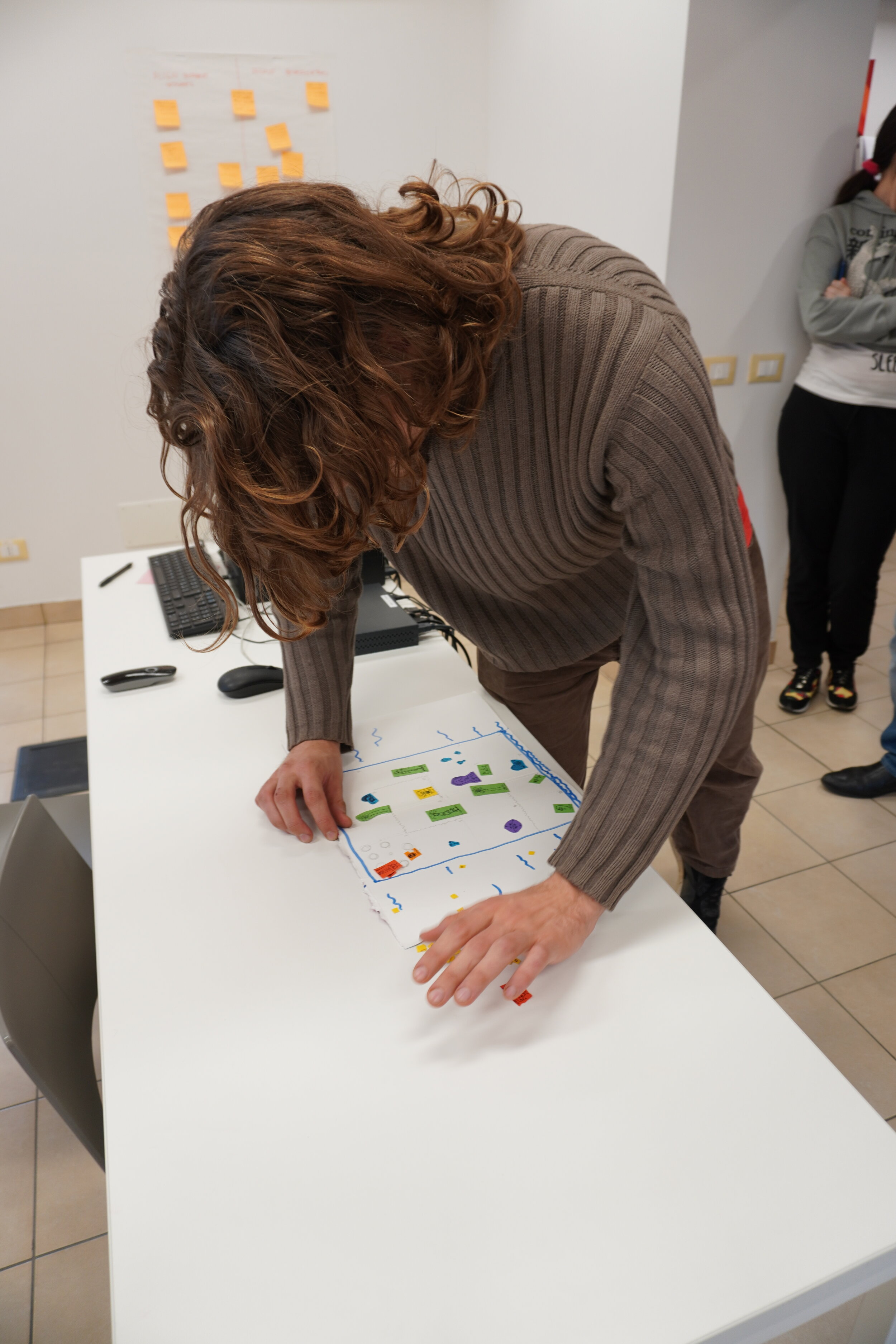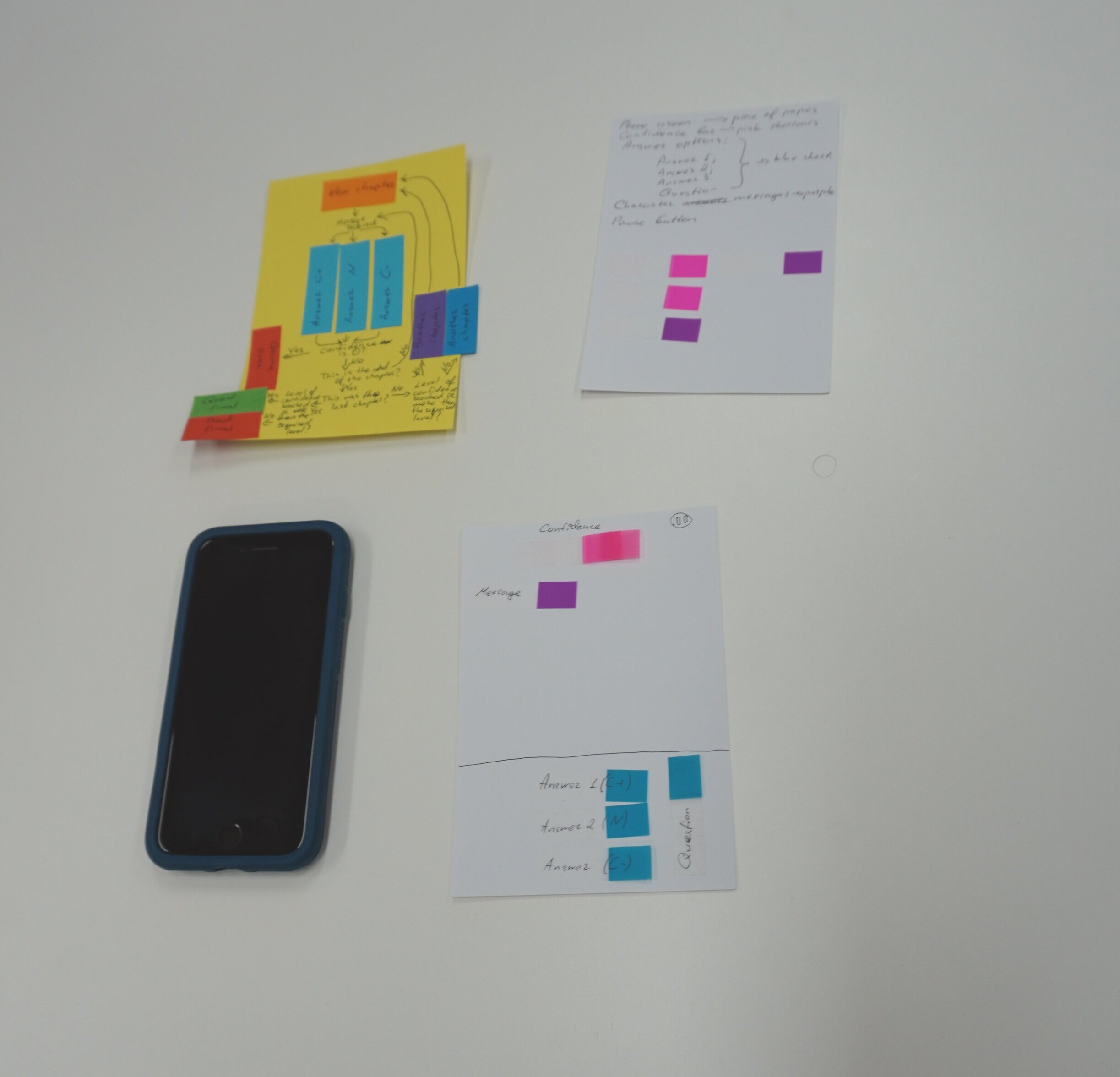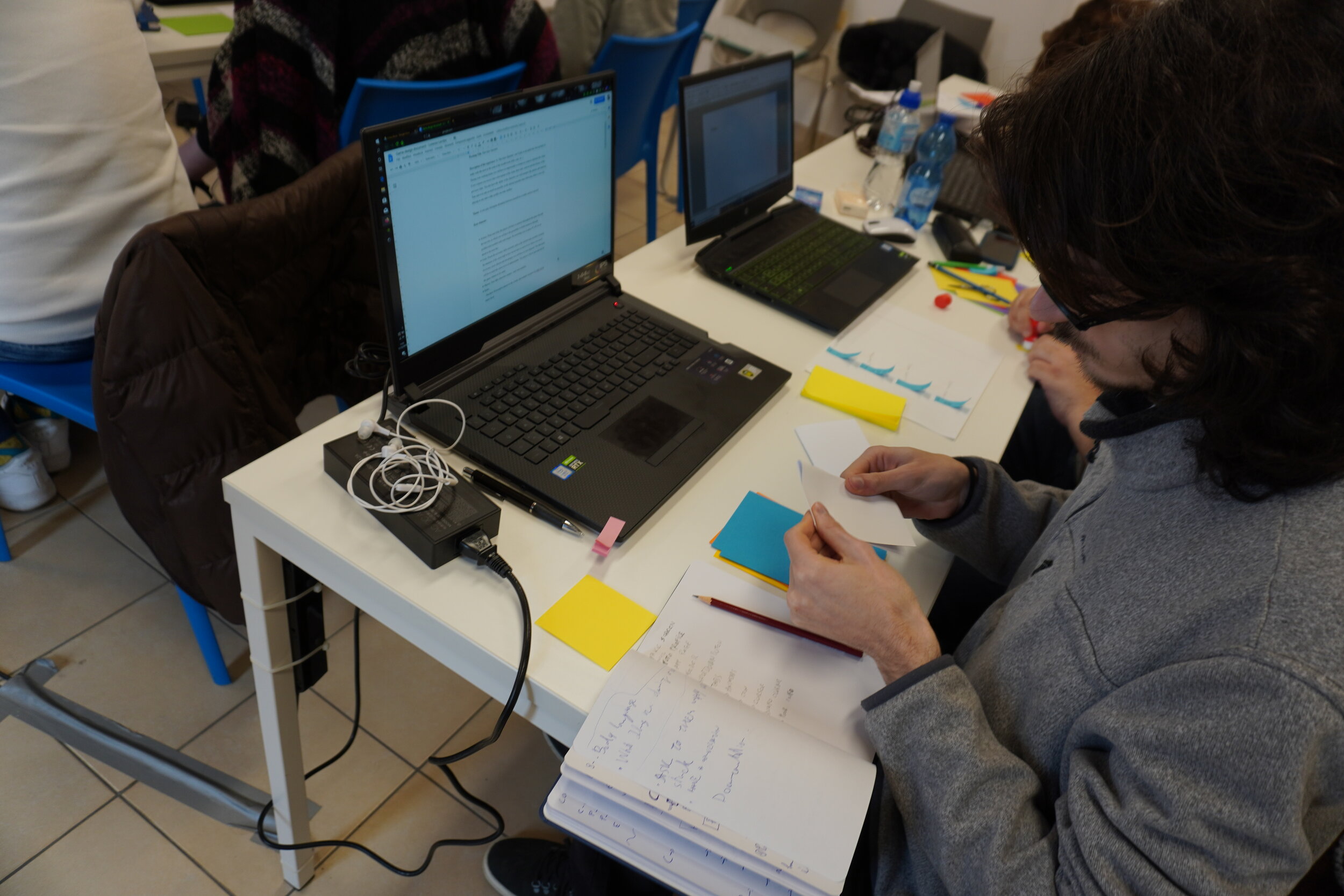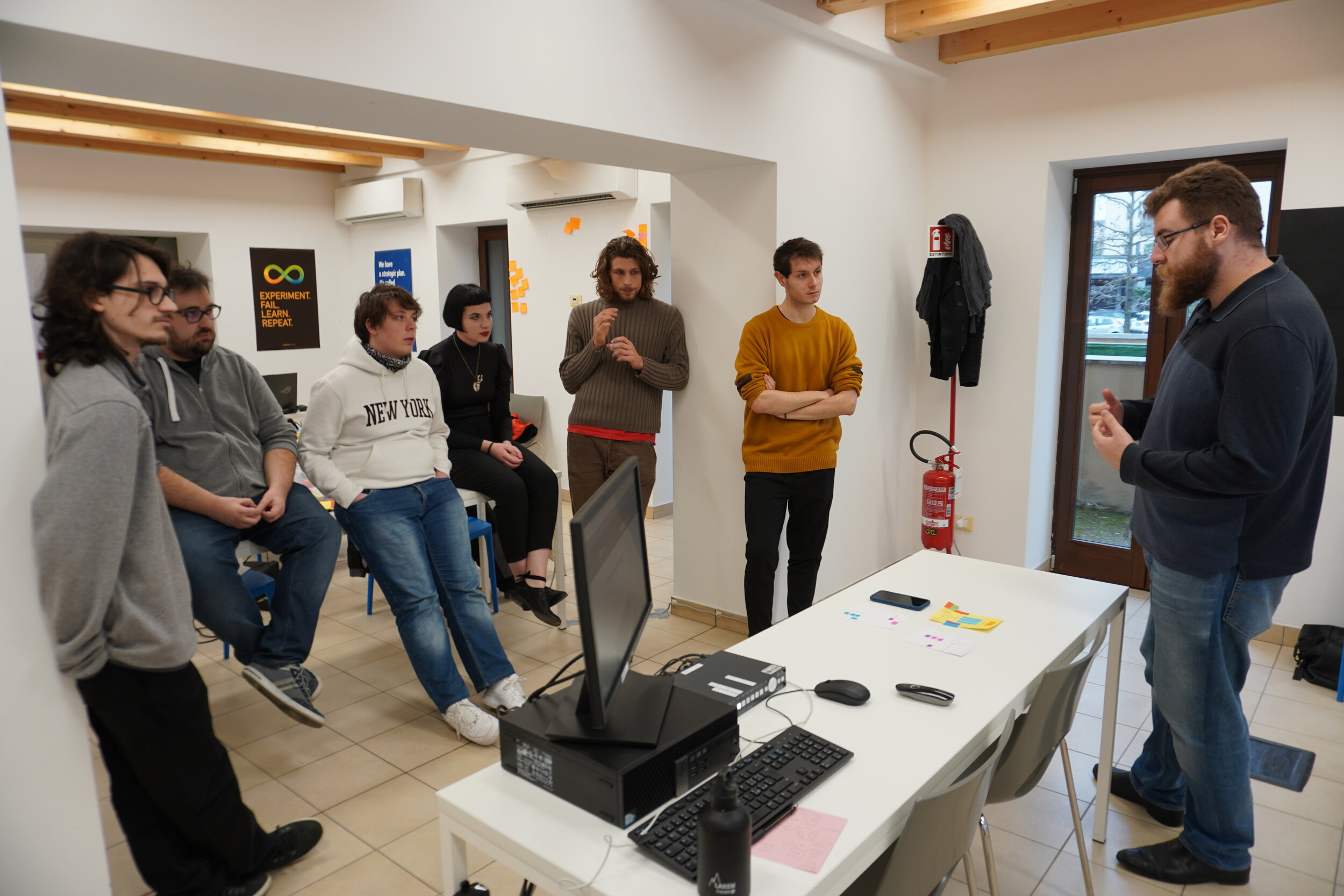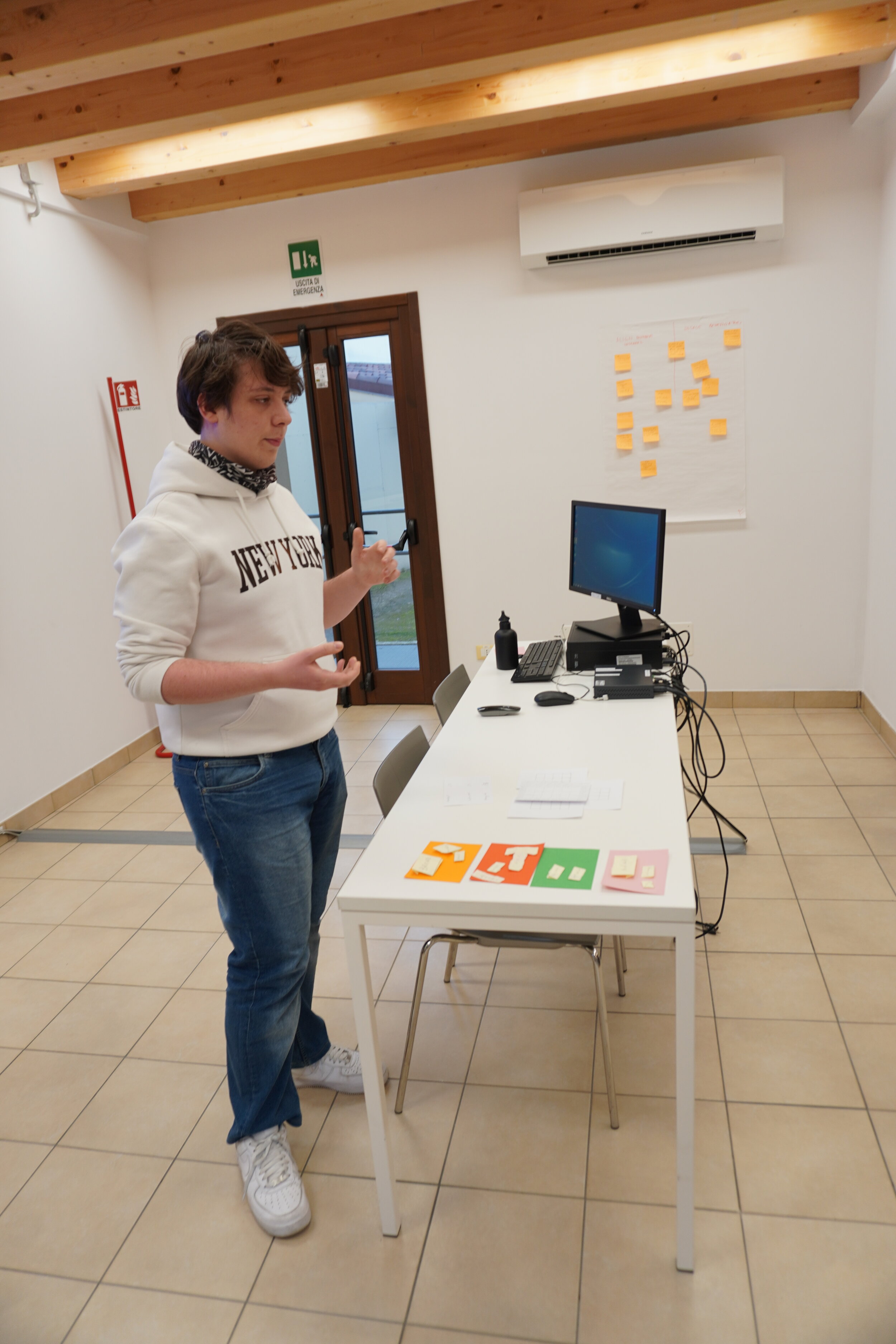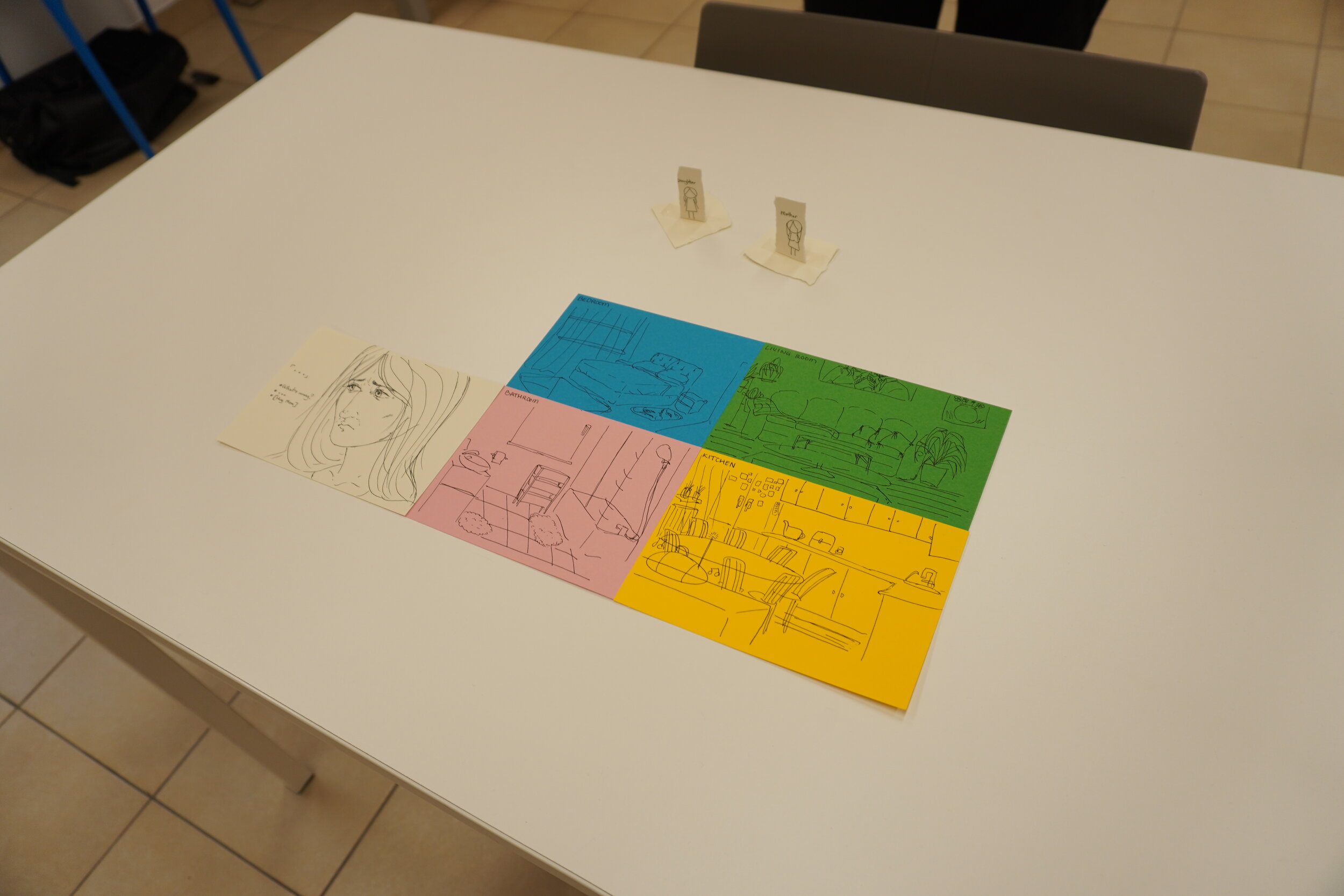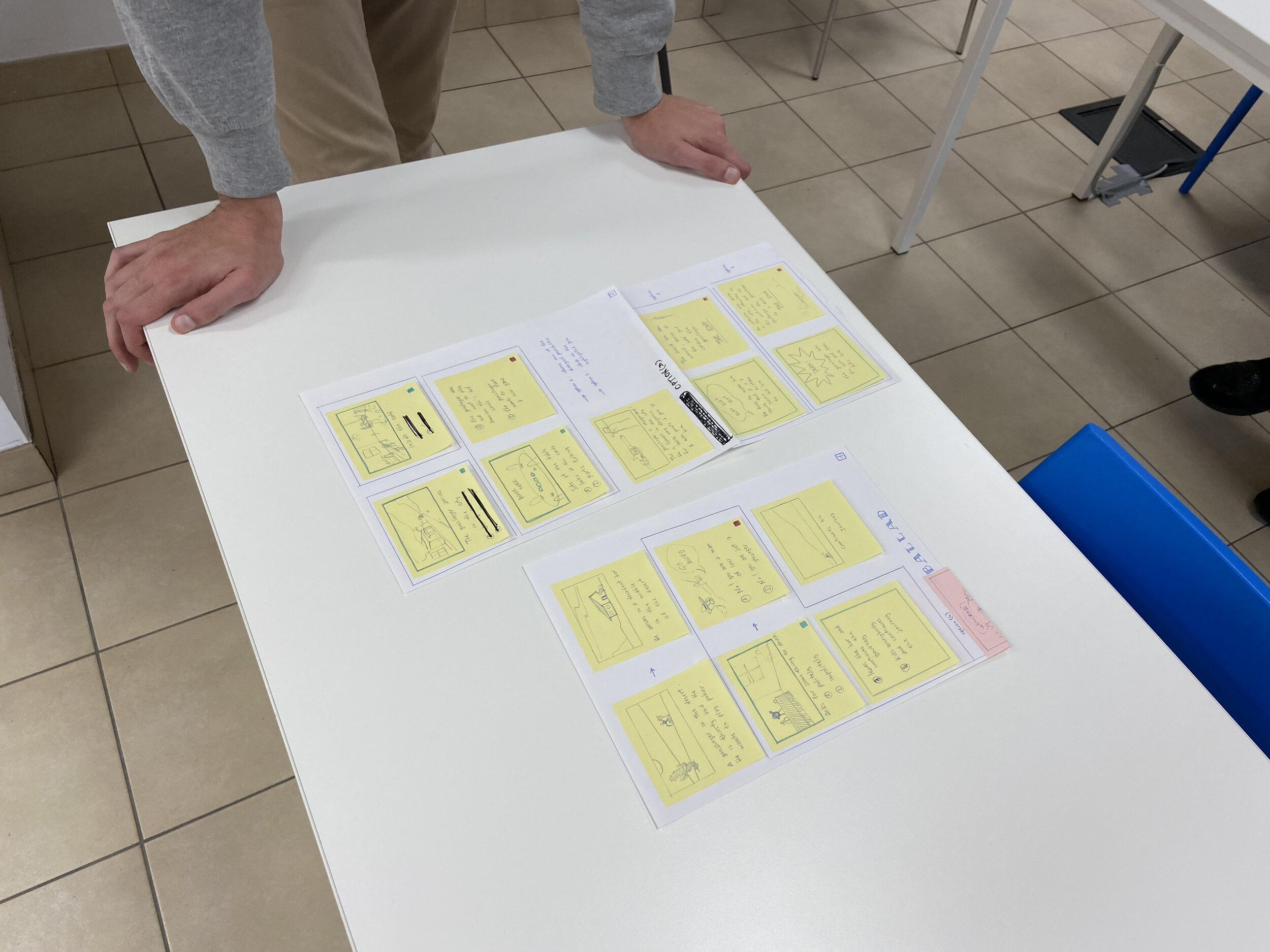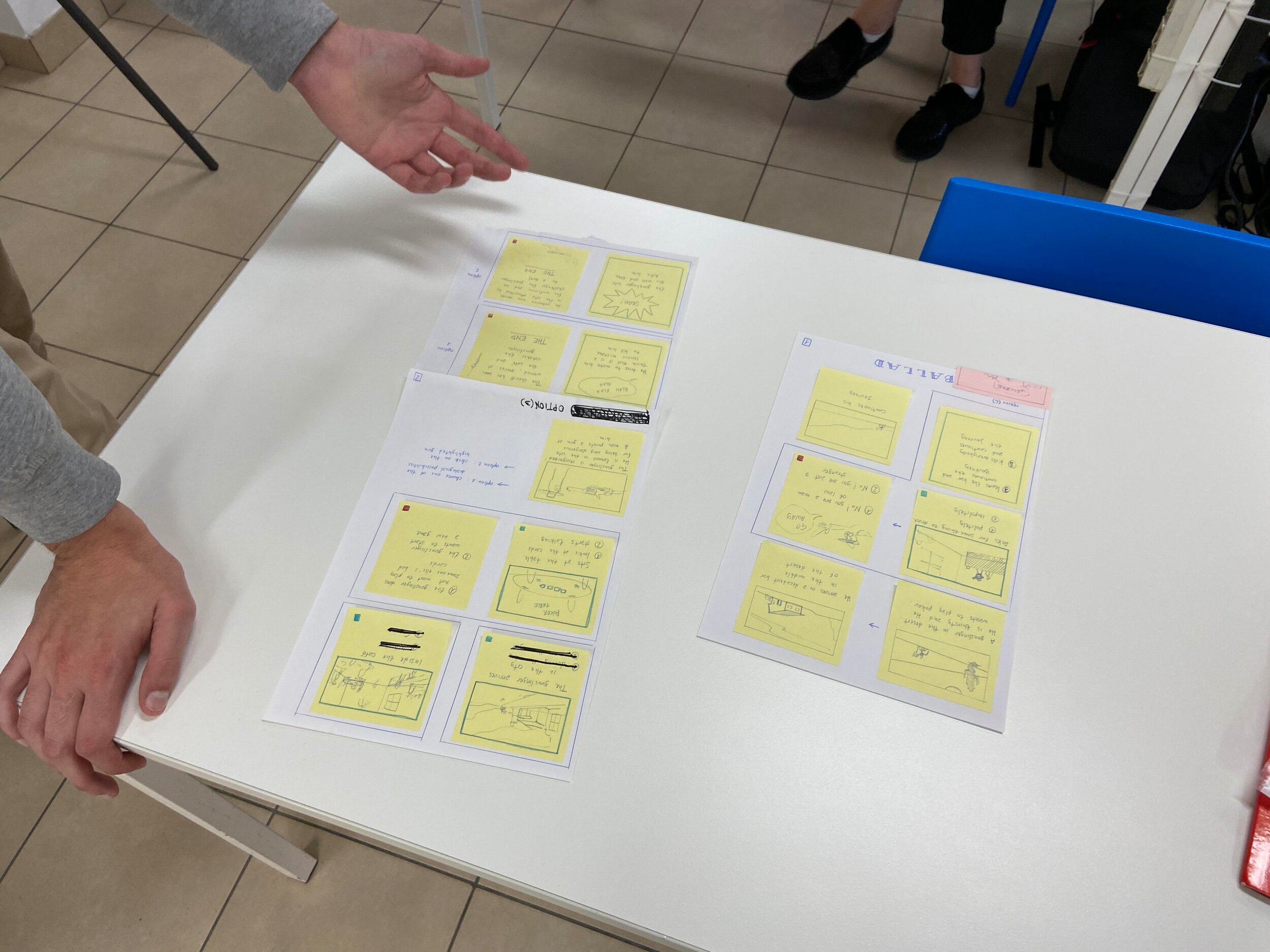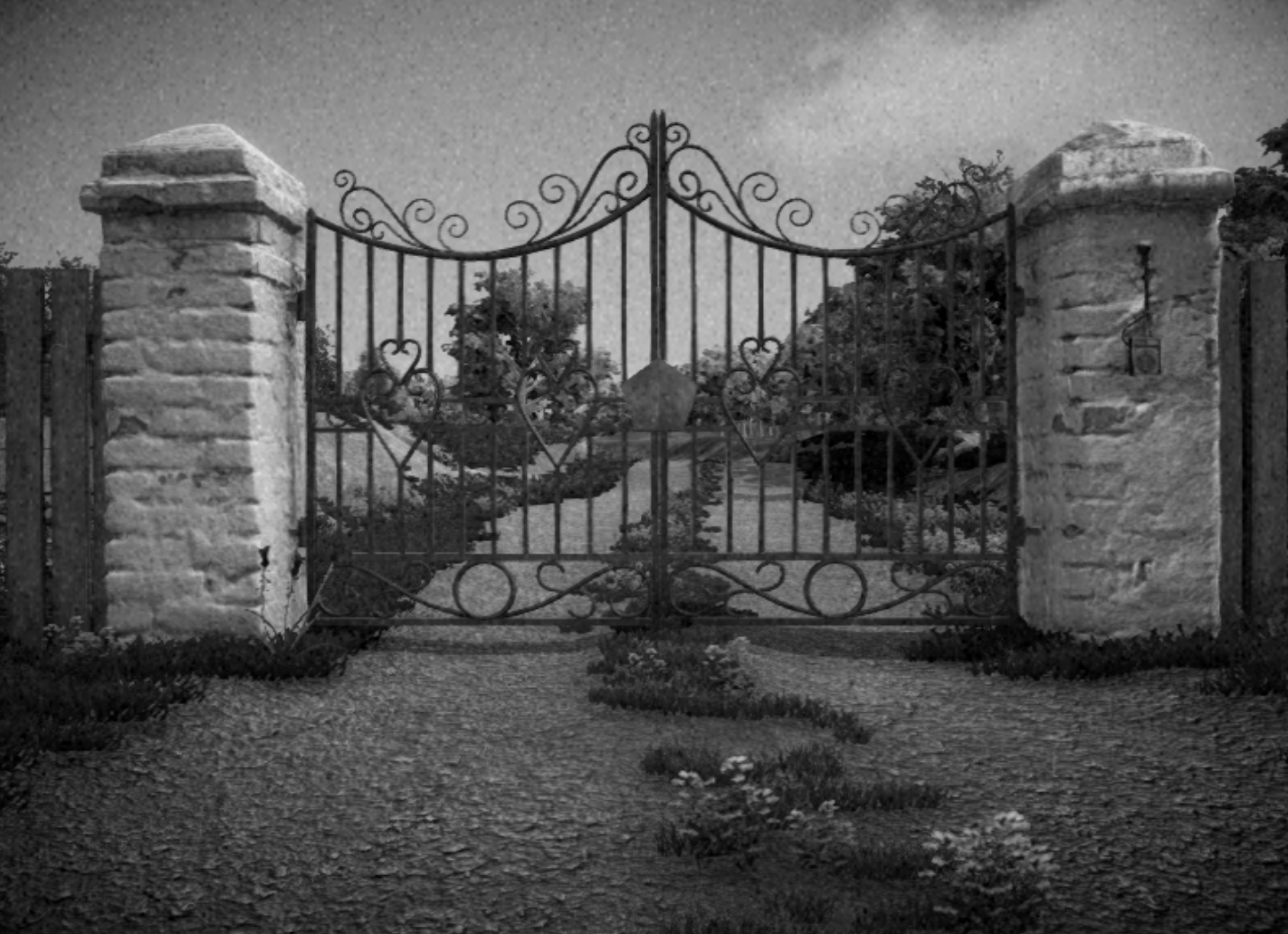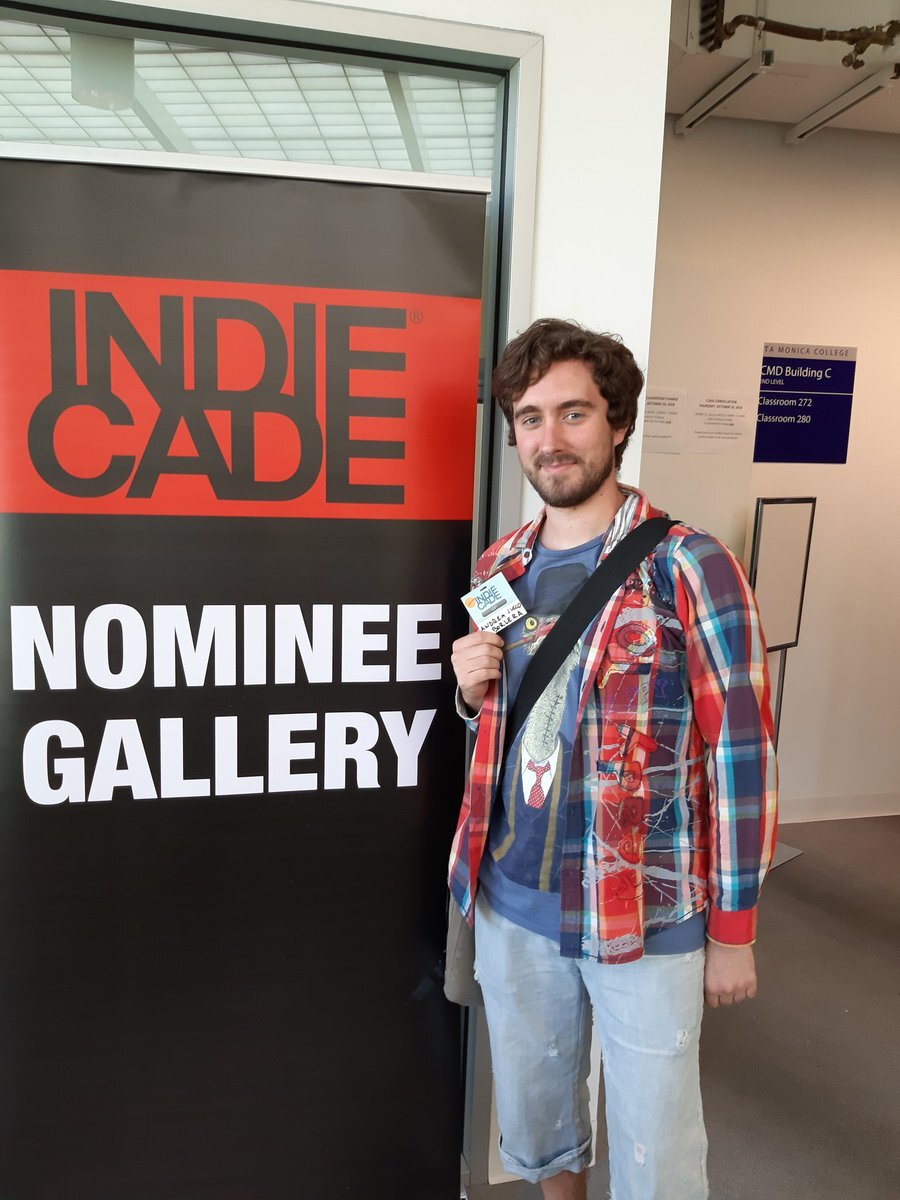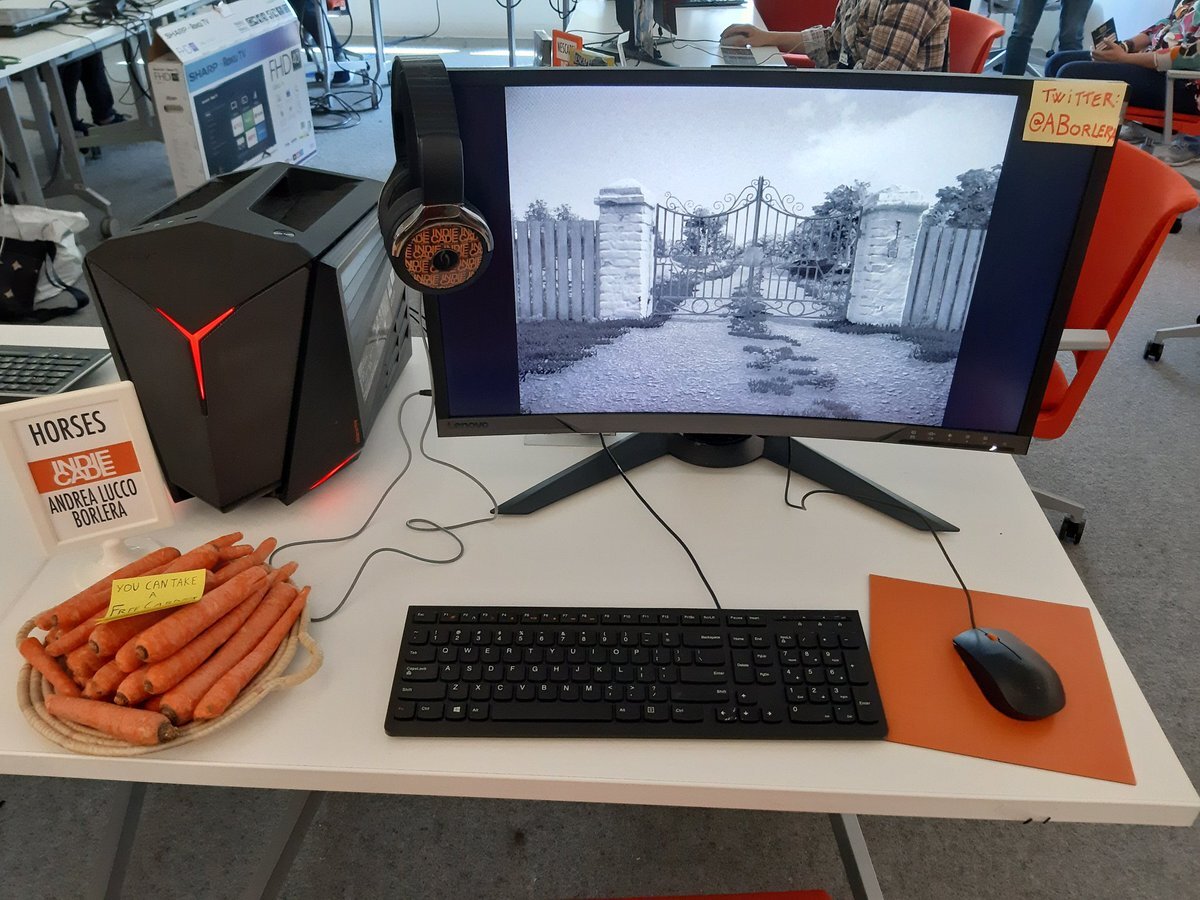NEWS
Filtering by Tag: game design
EVENT: STEFANO GUALENI (APRIL 29 2021)
COLL.EO
APRIL 29 2021/29 APRILE 2021
17:00 - 18:00
Online event
Università IULM, Via Carlo Bo, 1, 20143 Milan
LUDIC UNRELIABILITY AND DECEPTIVE DESIGN
LANGUAGE: ENGLISH
Drawing from narratology and design studies, Stefano Gualeni will introduce the ideas of the “implied designer” and “ludic unreliability”. Those two fundamental notions will then be leveraged to present the idea of “deceptive game design”, a subset of the wider category of transgressive game design. In this talk, Gualeni will discuss deceptive design not only understood as an intentionally manipulative practice, but also as one that aims to provoke specific experiential and emotional responses that are in the interest of players. Several examples and strategies for deceptive design will be examined during the talk, which will conclude with the proposition of a taxonomy for deceptive design decisions on the basis of their shared qualities (overt, covert, ludic, and paraludic).
Stefano Gualeni (Ph.D.) is a philosopher who designs digital games and a game designer who is passionate about philosophy. He is an Associate Professor at the Institute of Digital Games (University of Malta), and a Visiting Professor at the Laguna College of Art and Design (LCAD) in Laguna Beach, California. Among his most relevant publications are the two books Virtual Worlds as Philosophical Tools (Palgrave, 2015), and Virtual Existentialism: Meaning and Subjectivity in Virtual Worlds (Palgrave Pivot, 2020, with Daniel Vella).
L’INAFFIDABILITÀ LUDICA E IL DESIGN INGANNEVOLE
LINGUA: INGLESE
Attingendo alla narratologia e agli studi progettuali, Stefano Gualeni introduce le nozioni di “Designer implicito” e “inaffidabilità ludica”. Queste due nozioni chiave saranno utilizzate per presentare l’idea di “game design ingannevole”, un sottoinsieme della più ampia categoria di game design trasgressivo. In questo intervento Gualeni discuterà del design ingannevole non solo inteso come una pratica deliberatamente manipolativa, ma anche come una strategia che mira a provocare specifiche esperienze esperienziali e risposte emotive che sono nell’interesse dei giocatori. Verranno presentati vari esempi di design ingannevole e una tassonomia delle decisioni progettuali ingannevoli sulla base delle loro qualità condivise (esplicite, implicite, ludiche e paraludiche).
Stefano Gualeni (Ph.D.) è un filosofo che progetta giochi digitali e un game designer appassionato di filosofia. È Professore Associato presso l’Institute of Digital Games (Università di Malta) e Visiting Professor presso il Laguna College of Art and Design (LCAD) a Laguna Beach, in California. Tra le sue pubblicazioni più rilevanti spiccano i volumi Virtual Worlds as Philosophical Tools (Palgrave, 2015) e Virtual Existentialism: Meaning and Subjectivity in Virtual Worlds (Palgrave Pivot, 2020, con Daniel Vella)
CALL FOR APPLICATIONS: WORLD AT PLAY SUMMER SCHOOL (JUNE 21-26 2021)
COLL.EO
PRESS RELEASE
The WORLD AT PLAY summer school is a part of a Voluptas research project into the intersection between game design, architecture and ludic pedagogy.
“And on the seventh day God ended His work which He had done, and He rested on the seventh day from all His work which He had done”
(Bible, Genesis 2:2-3, New King James Version)
This summer school proposes the makings of a new cosmogony: the creation of a playable world in one week. Then we rest.
A limited number of students from different backgrounds (architecture, game design, programming, art, philosophy) will come together to build the genesis of a playable digital world. The elemental ingredients of this world will be provided by the architecture projects produced by the Voluptas design studio: their spaces, mechanics, images and desires.
For one week, the team will evolve towards the common goal by drawing from their specific strengths and individual learning backgrounds, tutored by Pippin Barr, Andri Gerber and Francisco Moura Veiga.
Starting with a first day of theoretical input by the Voluptas chair, Tracy Fullerton, Bob Sumner, Emily Short, and Stefano Gualeni students will gain an overview of the week‘s processes and the end goal. the week will continue with a series of daily exercises and discussions with the tutors feeding into the creation of the world. On the last day, the playable world will be presented to a group of architects, game designers, and artists.
Send your applications (a short portfolio and letter of motivation of maximum 4 MB) to Francisco Moura Veiga at veiga@arch.ethz.ch.
Voluptas
Voluptas is the euphoric daughter of its time—the intoxicating offspring of measure and spirit. Amending the millenary Vitruvian ordinances of firmitas, utilitas and venustas, Voluptas initiates a transversal investigation on contemporary issues and sets combinatory dynamics as the channel of proliferating singularities. Its looping trajectory toward a saturation of problem settings aims at the empirical emanation of an alternative view of the urban condition. Enforcing desire as its prevalent agent, Voluptas is the elegiac display of residual energy.
It is the Charbonnet/Heiz design chair at the D-ARCH of the ETH Zurich.
Read more at WORD AT PLAY
EVENT: GAME TALK: MARCO BENÔIT CARBONE, RICCARDO FASSONE (2 DICEMBRE 2020, ONLINE)
COLL.EO
QUALI SONO I VIDEOGIOCHI MADE IN ITALY? E CHE IMMAGINE RESTITUISCONO DELL’ITALIA? IN QUESTO GAME TALK, MARCO BENÔIT CARBONE E RICCARDO FASSONE PRESENTANO UNA PANORAMICA DEL VIDEOGIOCO ITALICO.
Il videogame nel Belpaese esprime caratteri di cultura nazionale tanto nelle produzioni nostrane quanto nell’adattamento e nella ricezione culturale dei prodotti esteri. Nel recente volume antologico IL VIDEOGIOCO IN ITALIA. Storie, Rappresentazioni, Contesti curato da Marco Benoît Carbone e Riccardo Fassone per Mimesis Edizioni, numerosi ricercatori italiani e internazionali esaminano la fruizione e la produzione italiana di videogame, la rappresentazione del nostro paese, le relazioni tra giochi, fumetti, cinema, sport e brand nazionali, le comunità di giocatrici, critici e studiose nonché il crescente riconoscimento istituzionale del medium come veicolo per la promozione del patrimonio storico-culturale.
In questo GAME TALK, Marco Benoît Carbone e Riccardo Fassone discutono alcuni aspetti peculiare del "videogame italiano". In cosa consiste l’italianità del videogame, per parafrasare Roland Barthes?
Marco Benoît Carbone è Lecturer alla Brunel University, London. Per Mimesis ha scritto Tentacle erotica. Orrore, seduzione, immaginari pornografici (2013). È fondatore e redattore della rivista “GAME” e redattore di “JICMS – Journal of Italian Cinema & Media Studies”.
Riccardo Fassone è ricercatore all’Università degli Studi di Torino. Ha pubblicato due monografie, Every Game is an Island. Ending and Extremities in Video Games (2017) e Cinema e videogiochi (2017). È fondatore e redattore della rivista “GAME”. Realizza giochi con il collettivo Dotventi.
Il video integrale è disponibile qui.
Curati dal Master of Arts in Game Design dell’Università IULM, i GAME TALKS sono presentazioni, performance e seminari che celebrano la cultura, arte e creatività dei videogiochi e dei loro creatori. Situati all’intersezione tra game design, Game Art e game studies, i GAME TALKS mirano a stimolare, ispirare e sorprendere
NEWS: MEET OUR FACULTY: MARE SHEPPARD (ACADEMIC YEAR 2020-2021)
COLL.EO
WE’RE DELIGHTED TO PRESENT A SHORT VIDEO CHAT WITH PROFESSOR MARE SHEPPARD, A TALENTED GAME DESIGNER WHO TEACHES GAME CONTEXTS IN OUR PROGRAM.
Mare Sheppard is one half of Metanet Software Inc., a boutique game developer based in Montreal, Canada that produced the acclaimed N, N+ and N++. Metanet is focused on revisiting the great designs of the past and re-evaluating them from a fresh perspective, making games which are engaging, innovative, intriguing and most importantly: fun. Mare finds a lot of inspiration in print, industrial design, architecture and fashion, and her goal is to incorporate more of those ideas into games, and to continue to explore and expand the medium.
GAME CONTEXTS examines the cultural and artistic relevance of play and discusses key traits of games, surveying the emergent and interdisciplinary approaches to the understanding of video games. Particular attention is paid to integrating knowledge and design approaches from other creative and critical fields, such as game studies, cultural studies, media studies, and contemporary art. Pivotal to the module is the process of helping students develop strategies to explore these approaches for the development and production of their own work. Special attention will be devoted to applying various principles of game design to the games discussed in class, and on how game design as a discipline interacts with changes in design and culture altogether. Each week during, the instructor will introduce and discuss several games. Students will be required to familiarize themselves with the games and contribute to the discussion. The themes explored in class will subsequently be used for development goals.
Nella stessa serie: PIETRO POLSINELLI (GAME WRITING), AURIEA HARVEY & MICHAËL SAMYN (GAME ART)
NEWS: JUST DON'T CALL IT A "GAME DESIGN MANIFESTO"
COLL.EO
“DADA. FLUXUS. SITUATIONIST INTERNATIONAL. THE NEW GAMES MOVEMENT.”
Paolo Pedercini aka Molleindustria recently shared a list of essential info that every game designer should know. More than a manifesto - and certainly not a laundry list - this collection of insights from hundreds of game designers from all over the world is like an endless source of renewable energy.
Paolo Pedercini at the Microgames Workshop on November 13, 2019 at IULM University (Photo: Matteo Bittanti)
READ: TWO HUNDRED FIFTY THINGS THAT A GAME DESIGNER SHOULD KNOW
(Make sure to check out the uncut version as well.)
PHOTOS: MAKING PAPER PROTOTYPES (DEC 11 2019)
COLL.EO
EVENT: LORENZO REDAELLI'S FROM ZERO TO GAME TALK (DECEMBER 11 2019)
COLL.EO
On December 11 2019, Lorenzo Redaelli will discuss his strategy for turning concepts into playable prototypes for the students of the Master of Arts in Game Design at IULM University. The event takes place at Cascina Moncucco during GAME CONTEXTS, one of the Program’s core courses. It is also open to all alumni of the M.A. Program (to enroll, please RSVP at least three days in advance).
How can you design a successful video game without prior game design experience? Lorenzo Radaelli, an alumnus of the M.A. in Game Design at IULM, discusses his design philosophy through a detailed postmortem of Milky Way Prince: The Vampire Star, a first-person interactive visual novel about an abusive relationship between two individuals, one of whom suffers from Borderline Personality Disorder. A love/erotic story between a guy and a “shooting star” that follows players’ decisions, Milky Way Prince suggests that falling in love with somebody who suffers from BPD is like falling in love with a star. What did Lorenzo learn from this process? And what are the take away ideas for aspiring game designers? The journey from zero to game is full of challenges, failures, and surprises.
Lorenzo Redaelli received his M.A. in Game Design in October 2019 from IULM University. He also received a B.A. in Communication, Media, and Advertising in 2017 with a Thesis titled “Gojira vs. Godzilla; How Hollywood reinvented Japanese Kaiju movies" from the same school. Among his passions are Japanese culture, art, and interactive storytelling. He directed several animated shorts, shot an independent film, and produced two albums. In 2019, his final project, Milky Way Prince: The Vampire Star, was accepted at several international festivals, including Game On: El arte en juego (Buenos Aires, Argentina) and Game Happens (Genoa, Italy). Lorenzo lives and works in Milan.
NEWS: GAME SHOW 2019 (October 11 2019)
COLL.EO
GAME SHOW
Venerdì 11 ottobre 2019
Dalle ore 18.00 alle ore 19.00
IULM Aula Seminari (sesto piano)
Via Carlo Bo 1
20143, Milano
Ingresso gratuito previa registrazione
L’Università IULM è lieta di presentare i videogiochi creati da una nuova generazione di game designers.
Venerdì 11 ottobre 2019 dalle ore 18.00 presso l’Aula Seminari dell'Università IULM di Milano si terrà la seconda edizione di GAME SHOW, dedicata ai progetti finali realizzati dagli studenti del Master of Arts in Game Design durante l’anno accademico 2018-2019. Nel corso della cerimonia verranno consegnati i diplomi. Le opere - che spaziano da sofisticati videogiochi ad esperienze interattive in bilico tra arte, design, narrazione e simulazione - dimostrano un notevole livello di ingegno, creatività e diversità.
I progetti finali sono visibili qui.
GAME SHOW
Friday October 11 2019
6.00 - 7.00 pm
Aula Seminari (IULM 1, sixth floor)
IULM University
Via Carlo Bo 1 20143, Milan
Free entry, with registration
Join us for a showcase of the final projects developed by our graduating students, a new generation of game designers.
Friday October 11 2019, from 6 pm, IULM University will host the second edition of GAME SHOW, an event open to the public showcasing the projects developed by the students of the Master of Arts in Game Design in the 2018-2019 academic year. During the ceremony, students will be handed their diplomas. Ranging from advanced video games to interactive experiences situated at the intersection of design, storytelling and simulation, the works display a high level of ingenuity, creativity, and diversity.
The final projects are listed here.
NEWS: ANDREA LUCCO BORLERA'S HORSES AT INDIECADE 2019!
COLL.EO
Andrea Lucco Borlera’s surreal Horses is competing at the 2019 edition of Indiecade, The International Festival of Independent Games, which takes place between October 10-12 in Santa Monica, California.
Horses was Andrea’s final project during the 2017-2018 edition of the Master of Arts in game Design at IULM University. A narrative game inspired by silent, surrealist films, Horses was also accepted at the A. MAZE festival in Berlin in April 2019 in the “Most Amazing Game” category.
Before joining the game design program at IULM University he had no previous experience with coding. Previously, Andrea received an M.A. in Cinema, Television and Multimedia from the Università Roma Tre in Rome and made several experimental videos and avant garde short films.
The IndieCade Festival is the premiere event dedicated to celebrating independent games. IndieCade offers the unique opportunity to play and preview hundreds of the latest indie games and innovations, many of which are seen first or can only be played at IndieCade. The Festival is filled with the opportunity to play a multitude of games from around the world, attend talks and events, interact with creators of new titles, as well as legends from across the industry, enjoy music, and so much more. IndieCade also hosts an in-depth game developer summit, conference sessions, educational workshops, business networking, social activities, tournaments, and entertainment. This year’s edition takes place between October 10-12 in Santa Monica, California.
Click here to see the full selection of nominees.
Horses di Andrea Lucco Borlera è tra i candidati dell'edizione 2019 di IndieCade, il Festival Internazionale dei Videogiochi Indipendenti che si svolge dal 10 al 12 ottobre a Santa Monica, in California.
Andrea Lucco Borlera ha sviluppato Horses come progetto finale durante il Master of Arts in Game Design 2017-2018 presso l'Università IULM. Gioco narrativo ispirato al cinema muto e surrealista, Horses è stato accettato anche al festival A. MAZE di Berlino lo scorso aprile nella categoria "Most Amazing Game".
Prima di cimentarsi con il game design presso l'Università IULM, Andrea non aveva alcuna esperienza di programmazione. In precedenza, aveva conseguito un Master in Cinema, Televisione e Multimedia presso l'Università Roma Tre di Roma, realizzando diversi video sperimentali.
Photos courtesy of Andrea Lucco Borlera










